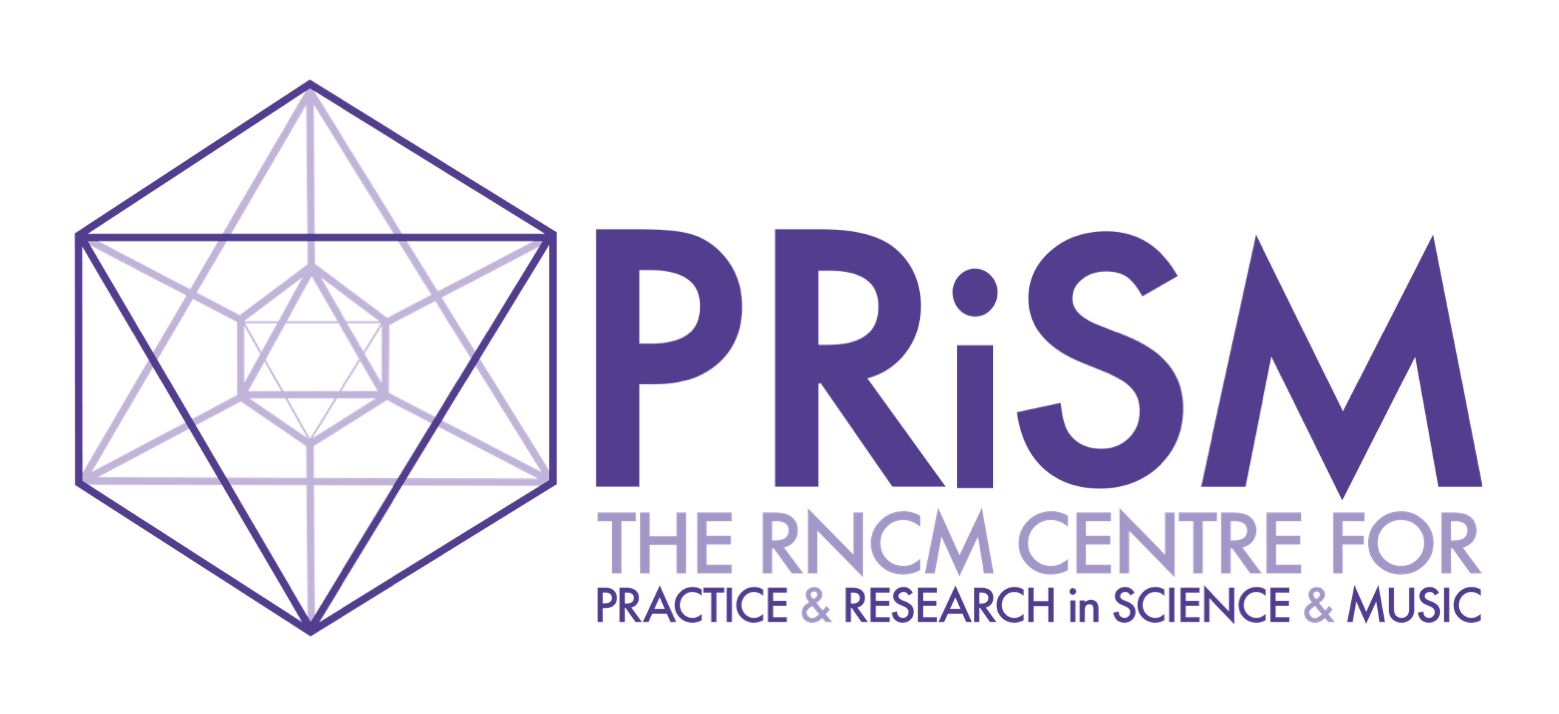Ada Lovelace: Imagining the Analytical Engine (2 Nov 19)
Part of Barbican Life Rewired: world premiere performances of new works by Patricia Alessandrini, Shiva Feshareki, Emily Howard and PRiSM led by Robert Laidlow
Commissioned by the Barbican Centre
Curated by Emily Howard
On 2 November 2019, composer Emily Howard, whose inspirations range from geometry and magnetism to the human brain and neural networks, curated an evening of new music and discussion inspired by the life and work of Ada Lovelace, an early pioneer of the computer. Ada Lovelace (1815-1852) explored far-reaching mathematical concepts and worked with Charles Babbage on his revolutionary Analytical Engine; she is remembered for publishing the first computer programme in an era when such machines were merely the stuff of dreams. Read Lovelace’s visionary contribution to computing here.
The evening began with a performance of Howard’s Ada sketches (2011), and continued with four Barbican-commissioned world premieres, each a response to Lovelace and her prescient ideas. The works were performed by Marta Fontanals-Simmons and Britten Sinfonia, conducted by William Cole at Milton Court Concert Hall, London.
There was a panel discussion with experts on different aspects of Ada Lovelace’s life and work, chaired by the compere for the evening, BBC Radio 3’s Andrew McGregor. Joining Emily and Andrew were:
- Professor Ursula Martin CBE – mathematician, computer scientist and co-author of Ada Lovelace: The Making of a Computer Scientist,
- Sydney Padua – graphic artist and author of the graphic novel The Thrilling Adventures of Lovelace and Babbage, and
- Conrad Shawcross – an artist whose sculpture experiments with ideal geometries and topologies, including The ADA Project [2013 – ]
You can download a copy of the full programme notes for the evening here and links to videos of the performances are below.
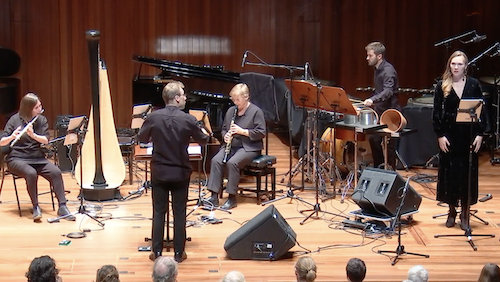
Ada sketches | Emily Howard – music, Laura Tunbridge – text
Composed in 2011, Ada sketches is a short dramatic scena for mezzo-soprano and chamber ensemble that imagines an inner world of mathematician Ada Lovelace. Lovelace experiences a number of creative discoveries as she explores a mathematical equation solved by Charles Babbage’s hypothetical 1842 Analytical Engine. As she works, a musical solution to the equation gains a life of its own, causing Lovelace to contemplate her own position in history. Watch the video here.
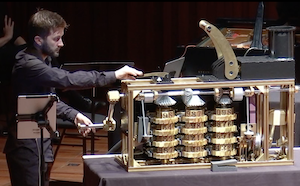
Alter | PRiSM led by Robert Laidlow
Alter is written about, and utilising, artificial intelligence. Through three phases, it traces the development of an artificial mind: from hazy unformed conception to a complex and creative self. The piece incorporated The Lovelace Engine, a hand-turned percussion battery styled after Charles Babbage’s 19th-century Difference and Analytical Engines, written about at length by Lovelace. Jonathan Morris, Mechanical Engineer at Cambridge Design Partnership, explains how he came to design and build it here. Watch the video here.
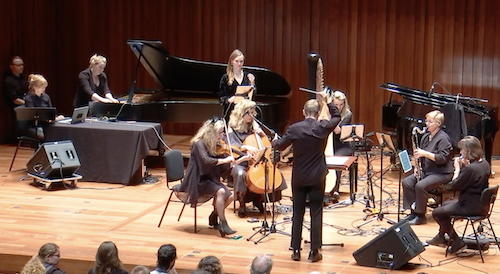
Ada’s Song | Patricia Alessandrini
Ada’s Song (2019) is for mezzo-soprano, ensemble and interactive piano machine. The work takes as a prompt Lovelace’s theorisation of notions of AI, its possibilities – including composing music – and limitations, and explores AI-assisted composition and its relationship to interpretation and expressivity in music. Watch the video here.
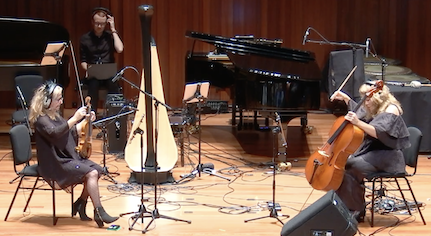
Perpetual Motion | Shiva Feshareki
In two contrasting movements: I – Acoustic II – Electronic
Ada Lovelace reflected on the creation of Artificial Intelligence, in the dawn of the programming age, through her writings on the unrealised Analytical Engine. After Lovelace’s work, Shiva Feshareki’s composition comments on the contemporary perpetual motion of technological culture. Watch the video here.
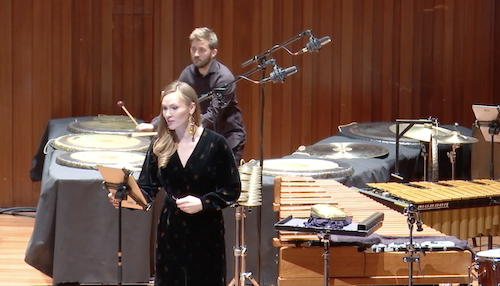
But then, what are these numbers? | Emily Howard – music, Ada Lovelace – text
But then, what are these numbers? (2019) is a setting from a little known letter penned by Ada Lovelace to her mother. In sentences that jump between disparate subjects, the letter seems to explore questions of order, disorder and technological progression. Watch the video here.
We had the great pleasure of hosting an evening in honour of Ada Lovelace, curated by Emily Howard, in November 2019. This event at Milton Court was part of the Barbican’s Life Rewired season which explored what it means to be human when technology is changing everything. It was an extraordinary evening with four Barbican-commissioned world premieres, written using or taking creative inspiration from artificial intelligence. It featured a newly-created instrument as well as expert panellists such as Ursula Martin and Sydney Padua. The composers and performers brought together words and music to celebrate and illuminate Ada Lovelace’s legacy and achievements.
For the Barbican, an important part of our Life Rewired season was to bring in audiences who might be interested in the scientific aspects of the programme and would discover new music or other artforms on their journey. Another mission for us was to introduce our regular concert-goers to fascinating areas of mathematics and science. It’s hard to imagine a performance that could have achieved this better: the audiences were totally engaged, and also very much entertained, by the incredibly insightful panel discussion on Ada Lovelace’s life and work, and captivated by the exciting new music performed by our Associate Ensemble, Britten Sinfonia. We are grateful to Emily Howard, Shiva Feshareki, Patricia Alessandrini and the PRiSM team with Robert Laidlow for an event that will live on long in our collective memories!
Huw Humphreys, Barbican Head of Music

